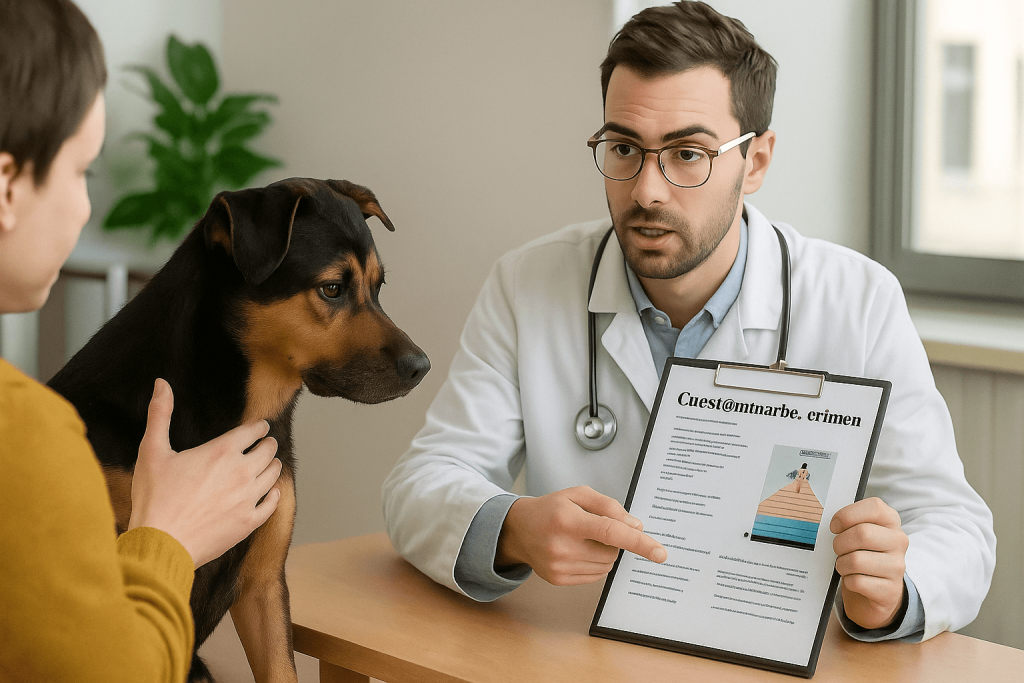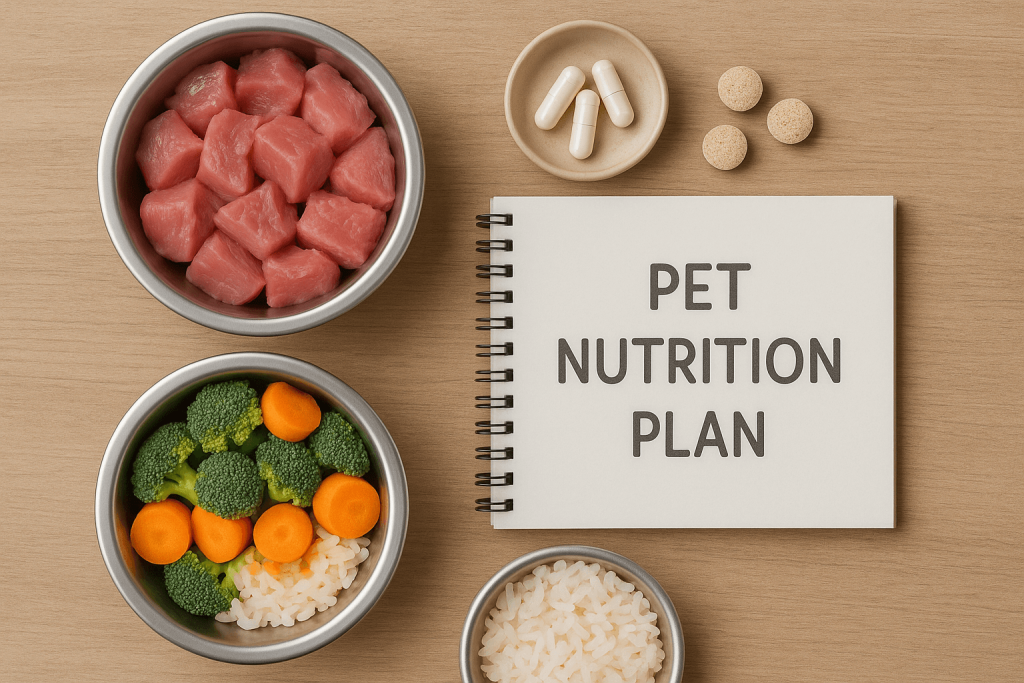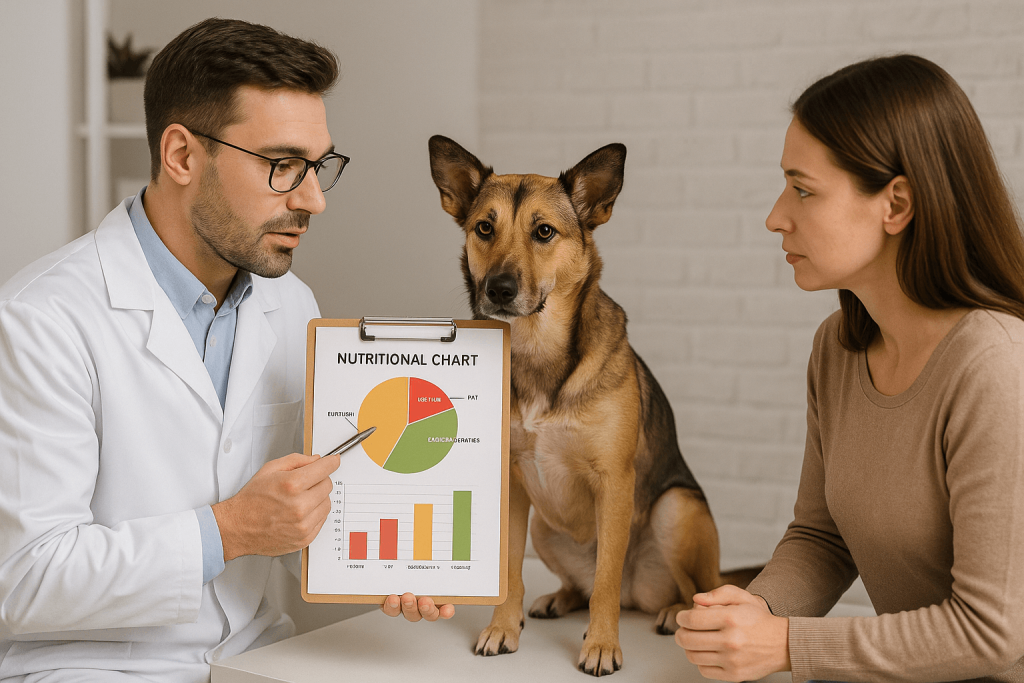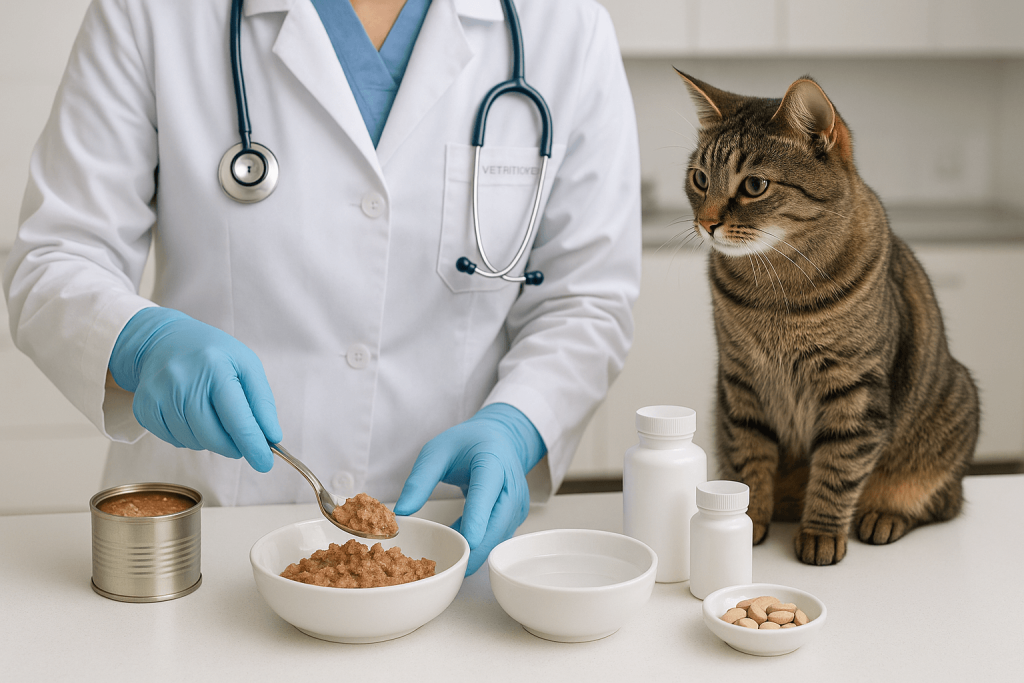
When it comes to keeping your pet healthy, nutrition plays a crucial role. Just like humans, animals need balanced diets that meet their unique physiological needs. A veterinary nutritionist specializes in understanding and managing those dietary needs with scientific precision. Whether your dog struggles with weight issues, your cat has food allergies, or your rabbit needs a balanced diet, these professionals ensure your pet’s food fuels optimal health.
Understanding the Role of a Veterinary Nutritionist
What Is a Veterinary Nutritionist?
A veterinary nutritionist is a licensed veterinarian with advanced training in animal nutrition. These specialists design, monitor, and adjust diets to promote overall wellness, prevent disease, and support medical treatments. They are board-certified professionals recognized by the American College of Veterinary Nutrition (ACVN) or equivalent global bodies.
Education and Certification Requirements
Becoming a veterinary nutritionist isn’t easy. It requires completing a Doctor of Veterinary Medicine (DVM) degree, followed by several years of residency training and research in animal nutrition. Afterward, candidates must pass a rigorous examination to become board-certified. This ensures that every veterinary nutritionist offers credible, evidence-based advice for pets.
The Difference Between a Vet and a Veterinary Nutritionist
While general veterinarians handle a wide range of medical conditions, veterinary nutritionists focus exclusively on diet and its connection to health. They collaborate closely with regular vets to create dietary solutions that complement medical treatments — such as formulating kidney-friendly diets for dogs with renal disease or low-fat diets for pets with pancreatitis.
Why Your Pet Might Need a Veterinary Nutritionist
Signs Your Pet’s Diet Needs Professional Attention
Sometimes, your pet’s food might look fine, but subtle symptoms suggest an imbalance:
- Persistent itching or skin problems
- Digestive issues like vomiting or diarrhea
- Weight gain or loss without explanation
- Dull coat or unusual shedding
- Low energy or lethargy
If you notice these, consulting a veterinary nutritionist can help pinpoint the root cause.
Common Pet Health Problems Linked to Poor Nutrition
Poor diet is a silent threat behind many chronic diseases in pets — including obesity, diabetes, arthritis, and gastrointestinal disorders. Nutritionists help prevent and manage these conditions through carefully calculated meal plans that restore balance and vitality.
Benefits of Consulting a Veterinary Nutritionist

Customized Meal Plans Based on Breed and Age
Every breed, age, and lifestyle demands a unique nutritional approach. For example, senior dogs may need more protein and omega-3s for joint health, while kittens need calorie-dense diets for growth. A veterinary nutritionist tailors the diet accordingly.
Managing Chronic Illnesses Through Nutrition
Pets with kidney disease, allergies, or cancer require specialized diets. Nutritionists design meals that support these medical conditions, often improving quality of life and prolonging lifespan.
Weight Management and Dietary Balance
Obesity in pets is a growing concern worldwide. Veterinary nutritionists use precise calorie calculations to help pets lose or gain weight safely — without depriving them of essential nutrients.
Nutritional Supplements and Functional Foods
From probiotics to joint supplements, these professionals identify safe, effective additions that enhance your pet’s overall health.
How a Veterinary Nutritionist Works with You and Your Pet

Initial Consultation and Health Assessment
The process begins with a thorough health evaluation. Nutritionists gather data about your pet’s medical history, activity level, and eating habits.
Developing a Personalized Nutrition Plan
Using this information, they design a custom diet — whether commercial, home-cooked, or raw — ensuring it meets AAFCO nutritional standards.
Ongoing Monitoring and Adjustments
Regular check-ins help track your pet’s progress, ensuring the diet continues to meet evolving needs.
Veterinary Nutritionist Services: What to Expect
In-Clinic Consultations vs. Online Nutrition Services
Veterinary nutrition services have evolved beyond clinic walls. Today, pet owners can choose between in-person consultations and online nutrition services.
- In-clinic visits allow hands-on assessments, including weight checks, physical examinations, and direct observation of your pet’s eating behavior.
- Online consultations, on the other hand, offer convenience and accessibility — ideal for pet parents in remote areas. Nutritionists review your pet’s medical history, dietary logs, and lab reports virtually before creating a diet plan.
Both formats can be effective, but online consultations may be best for follow-up appointments, while in-person visits work well for complex medical cases.
Average Costs and What They Include
The cost of hiring a veterinary nutritionist varies depending on the service type and location.
Here’s a general overview:
| Service Type | Average Cost (USD) | Includes |
|---|---|---|
| Initial Consultation | $150 – $300 | Health evaluation, dietary review, custom plan |
| Follow-up Visit | $75 – $150 | Progress assessment, adjustments |
| Specialized Medical Diet | $250 – $600 | Custom formulation for chronic diseases |
| Online Nutrition Service | $100 – $250 | Virtual consultation, plan delivery via email |
While these costs may seem high, they often prevent future vet bills by addressing health issues early through proper nutrition.
Choosing the Right Veterinary Nutritionist
Credentials and Experience to Look For
When selecting a veterinary nutritionist, always verify that they are board-certified by the ACVN (American College of Veterinary Nutrition) or hold equivalent credentials in your country. Look for:
- A DVM or equivalent veterinary degree
- Residency training in animal nutrition
- Membership in professional organizations like the European College of Veterinary and Comparative Nutrition (ECVCN)
- Experience with your pet’s specific species or condition
Remember, anyone can call themselves a “pet nutrition expert,” but only certified veterinary nutritionists have the medical background to handle complex cases.
Questions to Ask Before Hiring a Veterinary Nutritionist
To ensure the best care for your pet, ask:
- What certifications do you hold?
- Have you worked with pets similar to mine?
- How do you monitor progress and make adjustments?
- What’s your policy on homemade diets or supplements?
- How often should we schedule follow-ups?
These questions reveal their approach, transparency, and willingness to personalize care.
Veterinary Nutrition for Different Pets

Nutrition for Dogs: Balanced Meals for Every Life Stage
Dogs thrive on a balance of proteins, fats, carbohydrates, vitamins, and minerals. A veterinary nutritionist can fine-tune meals based on:
- Puppies needing high-calorie, high-protein diets for growth
- Adults requiring maintenance-level nutrients
- Seniors benefiting from joint-support supplements and controlled calories
Breed also matters — large breeds like Labradors need joint-friendly formulas, while small breeds may require calorie-dense food to maintain energy.
Nutrition for Cats: Protein, Hydration, and Taurine Needs
Cats are obligate carnivores — their diets must contain animal-based protein and essential amino acids like taurine. A veterinary nutritionist ensures cats get proper hydration and balanced wet-dry food combinations, which prevent urinary tract problems and kidney disease.
Nutrition for Exotic Pets: Birds, Rabbits, and Reptiles
Exotic animals have highly specific dietary needs:
- Birds need seed blends with fruits and greens.
- Rabbits require fiber-rich hay and limited pellets.
- Reptiles depend on balanced calcium-phosphorus ratios.
Only a qualified veterinary nutritionist can tailor such specialized diets safely.
Home-Prepared Diets vs. Commercial Pet Foods
Risks of Homemade Diets Without Expert Guidance
While homemade diets seem healthier, they can be risky if not properly balanced. Studies show that over 80% of home-cooked pet diets lack one or more essential nutrients. Without professional supervision, these deficiencies can lead to bone problems, organ failure, or malnutrition. A veterinary nutritionist can design balanced homemade recipes that meet scientific standards.
How Nutritionists Evaluate Commercial Pet Foods
Nutritionists examine labels for AAFCO certification, ingredient sources, and nutrient content. They often recommend brands backed by feeding trials and transparent manufacturing practices. This ensures your pet gets consistent, safe, and balanced nutrition.
The Future of Veterinary Nutrition
Emerging Trends: Raw Diets, Plant-Based Options, and Tech Tools
Pet nutrition is rapidly evolving. The rise of raw and plant-based diets, as well as AI-driven nutrition tracking apps, is transforming how owners feed their pets. Veterinary nutritionists help navigate these trends safely, identifying diets that align with your pet’s health status and ethical preferences.
Research and Innovations in Pet Nutrition
Ongoing research explores microbiome health, genetic predispositions to obesity, and personalized supplements. The future of veterinary nutrition focuses on precision feeding — tailoring diets based on DNA, metabolism, and lifestyle.
FAQs About Veterinary Nutritionists
1. What does a veterinary nutritionist do?
A veterinary nutritionist designs, monitors, and adjusts pet diets to promote health, manage diseases, and enhance quality of life.
2. How is a veterinary nutritionist different from a vet?
General vets treat a range of health issues, while nutritionists specialize exclusively in dietary management and metabolic health.
3. Can I consult a veterinary nutritionist online?
Yes, many offer virtual consultations where they assess your pet’s diet and create customized plans remotely.
4. How often should I consult a nutritionist for my pet?
Healthy pets may need annual check-ins, while pets with chronic diseases may require follow-ups every 2–3 months.
5. Are homemade diets safe for pets?
They can be — if formulated by a certified veterinary nutritionist. Unsupervised homemade diets often lack vital nutrients.
6. How do I find a certified veterinary nutritionist?
Visit the ACVN (acvn.org) or ECVCN (ecvcn.eu) websites for directories of certified professionals worldwide.
Conclusion: Building a Healthier Future for Your Pet
A veterinary nutritionist is your pet’s best ally in achieving lifelong wellness through science-backed nutrition. From managing chronic diseases to optimizing everyday diets, their expertise ensures every meal contributes to a healthier, happier pet.
Whether you’re a first-time pet parent or managing a senior animal’s health, investing in professional nutritional care pays off for years to come. Proper nutrition isn’t just about feeding — it’s about nurturing your pet’s vitality, one bite at a time.
🔗 External Resource:
Learn more from the American College of Veterinary Nutrition (ACVN): https://www.acvn.org
Leave a Reply